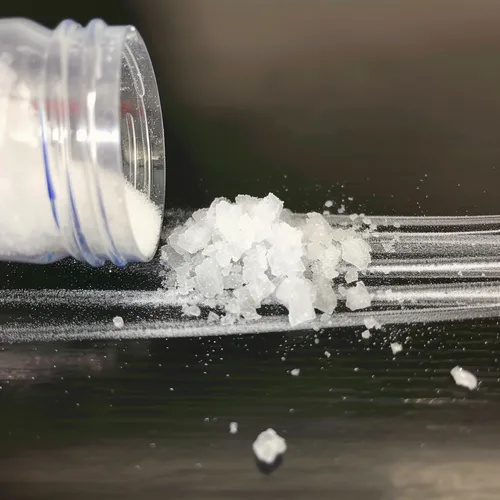What Medication Contains Benzoylecgonine?

This article will explore what benzoylecgonine is, its significance, and how it may be relevant in the context of certain medications, drug testing, and clinical settings. While benzoylecgonine itself is not directly used in pharmaceutical drugs, understanding its role can provide insight into the effects and implications of cocaine use.
Table of Contents
ToggleUnderstanding Benzoylecgonine
Benzoylecgonine is a byproduct of the body’s metabolism of cocaine. Cocaine, a powerful stimulant drug, is chemically known as benzoylmethylecgonine. After the drug is ingested—whether snorted, smoked, or injected—the liver processes it and converts it into several metabolites, including benzoylecgonine. This compound is detectable in urine and blood for a significant period after cocaine use, typically up to 48 hours, but it can sometimes be present for much longer in heavy users.
Due to its relative stability compared to cocaine itself, benzoylecgonine is often the substance tested for in drug screenings. These screenings are widely used in employment settings, legal environments, and medical contexts to confirm or rule out recent drug use.
The presence of benzoylecgonine in a drug test generally indicates that the individual has recently consumed cocaine. However, there are no legal or medicinal uses for benzoylecgonine itself—it is purely a metabolic byproduct of the illicit substance cocaine.
Cocaine in Medications
While benzoylecgonine itself is not found in medications, cocaine in its pure form has historically been used for medical purposes. Cocaine is a potent local anesthetic, and in certain situations, it is still used in medical practice, though rarely and under strict supervision. It is used to numb specific areas during surgery, particularly in ear, nose, and throat procedures. In these rare instances, the use of cocaine is highly controlled, and its prescription is typically regulated by health authorities due to the drug’s high potential for abuse and dependence.
Cocaine as a medication was more commonly used in the late 19th and early 20th centuries. At that time, it was included in a variety of medicines, including those intended to treat pain, coughs, and even depression. However, due to its addictive properties, cocaine became regulated, and its use in medicine was restricted. In the modern medical landscape, safer and more effective alternatives have largely replaced cocaine as an anesthetic or analgesic.
While cocaine is no longer routinely used in medical practices today, some medicinal products might still contain trace amounts of the substance. These are generally preparations of cocaine as a local anesthetic in specialized medical settings.
Cocaine-Containing Medications and Their Regulation
In some countries, cocaine is still included in specific formulations of medication for medical use. The most common current usage of cocaine in medicine is as a topical anesthetic for patients undergoing certain types of surgery, particularly those involving the nasal or throat areas. Cocaine hydrochloride is used for its powerful numbing effects, as well as its ability to constrict blood vessels, which helps reduce bleeding during surgeries.
For example, in the United States, the Food and Drug Administration (FDA) approves the use of topical cocaine for specific medical purposes. Cocaine may be applied directly to the mucous membranes of the mouth, nose, or throat in certain procedures. However, its use is strictly controlled, with careful guidelines in place to minimize the risks of addiction or misuse.
One of the more common situations in which cocaine is prescribed in this manner is during nasal surgery, such as for the repair of a deviated septum or other related conditions. Despite these controlled uses, cocaine is a highly regulated substance, and medical professionals must follow rigid protocols to ensure its safe administration. Only a limited number of healthcare providers are licensed to prescribe or administer cocaine in medical settings.
The Role of Benzoylecgonine in Drug Testing
Benzoylecgonine’s primary significance lies in its role as a marker for cocaine use during drug testing. It is the substance that is most often tested for in workplace drug screening, sports drug testing, and criminal investigations. Benzoylecgonine is a key biomarker that provides evidence of recent cocaine use, and it has a relatively long detection window compared to cocaine itself.
Drug tests, such as urine screenings, can detect benzoylecgonine for several days after cocaine consumption. In cases of heavy or chronic cocaine use, benzoylecgonine may be detectable for a longer period. This makes it a useful tool in identifying individuals who have used cocaine, even if they no longer exhibit the acute effects of the drug.
The detection of benzoylecgonine through drug tests is particularly important in various professional and clinical settings, including:
- Workplace Drug Testing: Many employers implement drug testing programs to maintain a safe and drug-free environment, particularly in industries where safety is a primary concern. The presence of benzoylecgonine in urine or blood samples serves as a clear indicator of recent cocaine use.
- Sports Drug Testing: Athletes are subject to regular drug testing to ensure fair competition and protect their health. Cocaine is classified as a banned substance by organizations such as the World Anti-Doping Agency (WADA), and its metabolites, including benzoylecgonine, are commonly tested for during athletic competitions.
- Legal and Forensic Testing: Law enforcement and forensic toxicologists rely on the detection of benzoylecgonine in criminal investigations, especially when determining whether an individual was under the influence of cocaine at the time of an incident. Drug tests are used to gather evidence in criminal cases, custody battles, or other legal matters.
Medications that May Affect Drug Test Results
Although medications containing benzoylecgonine are not prescribed in the medical field, certain medications may interfere with drug tests and create false-positive results for cocaine or its metabolites. Some medications contain compounds that are chemically similar to benzoylecgonine or cocaine, which can occasionally cause confusion in testing.
For instance, certain topical anesthetics or over-the-counter products, such as those containing lidocaine or similar chemicals, may occasionally lead to false positives in drug tests. These medications do not contain benzoylecgonine but may share structural similarities with cocaine. While such occurrences are rare, they highlight the complexity of drug testing and the need for confirmatory tests, such as gas chromatography-mass spectrometry (GC-MS), to accurately distinguish between different substances.
Additionally, medications for other conditions that are metabolized in ways similar to cocaine may also influence drug test results. These include certain antibiotics and medications used to treat conditions like ADHD or depression.
Legal and Health Implications of Benzoylecgonine in Drug Testing
The presence of benzoylecgonine in a drug test typically carries significant legal and health implications. In many cases, individuals who test positive for cocaine or its metabolites face consequences in their personal, professional, or legal lives. This is especially true in settings where drug use is strictly prohibited, such as the workplace or in certain criminal cases.
From a healthcare perspective, it is essential to approach patients with positive drug tests carefully. Medical professionals must assess the circumstances surrounding the test result, including whether the individual has a history of substance abuse, whether they have been prescribed medications that might affect the test result, and whether they have underlying health conditions that may impact the results.
In some situations, a positive test result for benzoylecgonine may prompt healthcare providers to recommend treatment or counseling for substance use disorder, depending on the individual’s history and the context in which the test was conducted.
Conclusion
While benzoylecgonine itself is not contained in any medications, its presence in the body is a crucial factor in detecting cocaine use. As a metabolite of cocaine, it serves as the primary substance tested for in drug screenings and toxicology reports, helping identify individuals who have used cocaine. Understanding its role in drug testing and recognizing the medications and substances that may impact drug test results are vital for healthcare providers, employers, and law enforcement. Although cocaine is still used in some specific medical situations, such as in localized anesthesia, its use is tightly controlled due to the drug’s addictive properties and potential for misuse.





